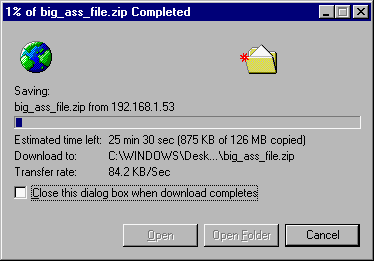Knowledge Capital
Downloading Quake in 1996 taught me about knowledge work.
As 22nd June 1996 rolled in, I eagerly connected my PC to the Internet and began downloading the Quake game demo. “Estimated time remaining 2 hours!?” I shouted, banging my fists against the desk.
How could it take so long to download one single file?! It was just a bundle of game logic and data. However, many years later something in my head clicked.
In most modern organisations, knowledge work has become the norm. “Unlike the visual transparency of physical labour, knowledge work takes place in the cerebral cortex of the brain” suggests Dominica Degrandis.
In modern organisations, we often also reorganise - we move responsibility for work from one team to another.
It is this reorganisation of knowledge work that has a surprising implication.
Suggests Peter Drucker, “Increasingly, the true investment in the knowledge [work] society is not in machines and tools. It is in the knowledge of the knowledge worker. [...] The surgeon needs the operating room of the hospital and all of its expensive capital equipment. But the surgeon’s true capital investment is the 12 or 15 years of training and the resulting knowledge that the surgeon takes from one hospital to the next. Without that knowledge, the hospital’s expensive operating rooms are so much waste and scrap.”
So, moving responsibilities in modern organisations requires us to also move the requisite knowledge. And, because this is hidden - unlike the requisite machinery and tools required for physical work - the cost of moving this knowledge is easily overlooked.
This is perhaps supported by Fred Brooks's law suggesting that “adding manpower to a late software project makes it later."
The takeaway? The biggest assets in knowledge work lies between our staffs’ ears, not on the balance sheet. This masks the significant cost of losing staff or moving responsibilities between teams, as the knowledge must be downloaded too. And I guarantee downloading that knowledge will take more than 2 hours.
